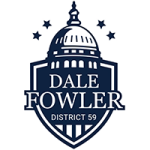In an address before the General Assembly on Feb. 19, Illinois Governor J.B. Pritzker unveiled a proposal that seeks $1.6 billion in new spending and makes some funding for priorities like education, health care and public safety, contingent on the approval of his tax increase.
As the spring legislative session gets underway in earnest, a number of new pieces of legislation have been filed including a bill that would change a process that too often leaves citizens waiting for treatment due to insurance coverage requirements. Other legislation recently filed includes a proposal to exempt overtime wages from the income tax and a bill that would recognize recipients of the Air Force Combat Action Medal.
Governor proposes $1.6 billion in new spending in budget address
Gov. J.B. Pritzker unveiled his budget proposal in an address before the General Assembly on Feb. 19, seeking $1.6 billion in new spending which relies on getting the Governor’s income tax increase approved.
“While I recognize that the budget address was just a starting point, the fact remains that I have very real concerns with the proposed $1.6 billion dollars in new spending. Given the current tax burden in this state and the continued Exodus of Illinoisans, our focus should be in providing relief to taxpayers and business, not adding to their burdens,” said Fowler. “Last year, we were able to pass a bipartisan, balanced budget. I’m ready to find common ground once again, live within our means and move our state forward.”
Lawmakers expressed concerns that in order to fund $1.4 billion for priorities like schools, health care and public safety, the Governor’s tax increase must be approved. Under the state’s revamped school funding formula from 2017, the state is statutorily required to increase school funding by $350 million a year. Under Pritzker’s proposal, only $200 million is guaranteed, leaving $150 million in school funding in jeopardy.
Senate Republican lawmakers contend that what Illinoisans need is more fiscal leadership and responsibility. They point to last year’s budget process as a road map that proves working collaboratively can produce a budget that meets the needs of Illinois citizens, and funds these priorities without a tax increase.
New reforms would reduce medical care delays
New legislation has been filed that would change a healthcare process that currently leaves many Illinois residents waiting for medical treatment because of insurance coverage requirements.
Illinois patients often have medical care delayed or denied because of their health plans’ use of a process called prior authorization. Senate Bill 3822, also known as the Prior Authorization Reform Act, is a bipartisan solution that supporters say will bring much-needed transparency and streamlining to prior authorization requirements.
Health insurance companies and pharmacy benefit managers use prior authorization to cut costs, requiring health professionals to do extra paperwork before their recommended patient care is approved. Even when authorization is granted, too often insurance companies later deny payment for medical care they approved.
Prior authorization requirements are often not based on clinically valid criteria, and are administered by individuals who lack relevant qualifications. The Prior Authorization Reform Act would make sure prior authorization requirements are based on medical evidence and administered by qualified individuals.
Senate Bill 3822 has been introduced in the Senate and awaits assignment to a legislative committee where it will receive a public hearing.
Overtime wages not taxable under new bill
Illinois residents who work overtime would find some tax relief under recently filed legislation that would exempt overtime wages from the state income tax.
Senate Bill 3695 would create a deduction on any overtime wages earned in Illinois. Wages earned in excess to a taxpayer’s regular monthly or weekly salary would be exempt from the state income tax.
The state income tax on overtime wages would still be withheld from an individual’s paycheck; however, when that person goes to file their taxes for that year, they would receive a deduction equal to the amount of taxes paid on overtime wages.
Supporters of the measures say it’s the least that can be done for hard-working Illinoisans who already face high tax burdens.
Air Force Combat veterans would be honored under new bill
Recipients of the Air Force Combat Action Medal could be recognized on Illinois license plates under newly filed legislation.
Senate Bill 2518 creates the Air Force Combat Action Medal license plate and allows the Secretary of State to issue them to eligible drivers. The new plate would join numerous others created to recognize military service and awards, including the Bronze Star, Purple Heart, and Navy Service Cross, among others. The existing Combat Action Badge plate is offered for Army recipients of that medal, which is very similar to the Air Force’s Combat Action Medal.

